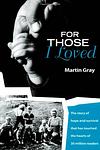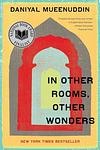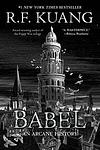The Greatest Multiple "Historical fiction" Books of All Time
Click to learn how this list is calculated.
This list represents a comprehensive and trusted collection of the greatest books. Developed through a specialized algorithm, it brings together 300 'best of' book lists to form a definitive guide to the world's most acclaimed books. For those interested in how these books are chosen, additional details can be found on the rankings page.
Genres
Historical fiction is a genre of literature that combines fictional stories with real historical events, settings, and characters. These books often take place in a specific time period and are based on research and factual information, but also include imaginative elements to create a compelling narrative. Historical fiction allows readers to experience the past in a unique and engaging way, while also providing insight into the social, cultural, and political issues of the time.
Countries
Date Range
Reading Statistics
Click the button below to see how many of these books you've read!
Download
If you're interested in downloading this list as a CSV file for use in a spreadsheet application, you can easily do so by clicking the button below. Please note that to ensure a manageable file size and faster download, the CSV will include details for only the first 500 books.
Download-
1. Infortunios De Alonso Ramirez / The Misfortunes Of Alonso Ramirez by José F. Buscaglia-Salgado, Carlos de Siguenza y Gongora
The book chronicles the harrowing adventures of Alonso Ramírez, a Puerto Rican man who, after being forced into piracy, endures a series of calamitous events at sea and across various lands. Captured by pirates, he survives shipwrecks, enslavement, and numerous hardships before eventually making his way back to Spanish territory. His story, which is presented as a true account, blurs the lines between fact and fiction, offering a unique perspective on colonial life, maritime culture, and the struggles of individuals caught between different worlds during the late 17th century.
-
2. For Those I Loved by Martin Gray
The book is a harrowing memoir of survival and resilience, chronicling the author's experiences during the Holocaust. As a young Jewish boy in Poland, he witnesses the brutal murder of his family by the Nazis and endures the horrors of the Warsaw Ghetto and Treblinka extermination camp. Against all odds, he manages to escape and join the resistance, fighting for freedom and justice. After the war, he rebuilds his life, only to face tragedy again when his wife and children are killed in a fire. The narrative is a testament to the human spirit's capacity to endure and find meaning in the face of unimaginable suffering.
-
3. In Other Rooms, Other Wonders by Daniyal Mueenuddin
"In Other Rooms, Other Wonders" is a collection of interconnected short stories that delve into the lives of various characters connected to a wealthy landowner in Punjab, Pakistan. The narrative spans different levels of society, from the landowner himself to his managers, servants, and peasants, weaving a tapestry of tales that reveal the complexities of power, influence, and relationships in Pakistani society. Each story explores themes of love, betrayal, and social mobility, offering a poignant look at the struggles and aspirations of individuals trying to navigate a world governed by tradition and changing socio-economic landscapes.
-
4. Babel by R. F. Kuang
This novel is a dark academic fantasy set in an alternate 19th-century Oxford, where translation is the key to harnessing magical power. It follows the journey of an orphan from Canton, who, after a tragic loss, is brought to England and later admitted into the prestigious Royal Institute of Translation, known as Babel. There, he discovers the true cost of the empire's linguistic dominance and magical control. As tensions rise and loyalties are tested, the protagonist must navigate a complex web of colonialism, power, and rebellion, ultimately confronting the oppressive structures of the institute and the empire it serves. The narrative weaves together themes of language, knowledge, and resistance, challenging the foundations of power and the price of progress.
Reading Statistics
Click the button below to see how many of these books you've read!
Download
If you're interested in downloading this list as a CSV file for use in a spreadsheet application, you can easily do so by clicking the button below. Please note that to ensure a manageable file size and faster download, the CSV will include details for only the first 500 books.
Download


